Water Balance
Water balance refers to the regulation of the amount of water in the body to maintain homeostasis. The human body continuously loses water through activities such as breathing, sweating, and urination. It is essential to replenish this lost water to prevent dehydration and maintain proper bodily functions.
Factors Affecting Water Balance
Several factors influence water balance in the body:
- Fluid Intake: The amount of water consumed through drinking and eating.
- Fluid Loss: The water lost through urine, sweat, breathing, and bowel movements.
- Climate: Hot and dry climates can increase fluid loss through sweating.
- Physical Activity: Exercise and physical exertion can lead to increased sweating and fluid loss.
- Health Conditions: Certain medical conditions such as diabetes or diarrhea can impact water balance.
Importance of Water Balance
Maintaining the right balance of water in the body is crucial for various bodily functions, including:
- Temperature Regulation: Water helps regulate body temperature through sweating and vasodilation.
- Nutrient Transport: Nutrients are transported in the bloodstream, which is primarily made up of water.
- Joint Lubrication: Water helps lubricate and cushion joints for smooth movement.
- Waste Removal: Water is essential for the excretion of waste products through urine and sweat.
Regulation of Water Balance
The body maintains water balance through various mechanisms:
- Thirst Response: The sensation of thirst prompts individuals to drink water and maintain fluid balance.
- Renal Regulation: The kidneys play a crucial role in regulating water balance by adjusting the volume and concentration of urine produced.
- Hormonal Control: Hormones such as antidiuretic hormone (ADH) and aldosterone help regulate water reabsorption and excretion in the kidneys.
Study Guide
To understand water balance, consider the following key points for your study:
- Define water balance and its significance in maintaining bodily functions.
- Explain the factors influencing water balance, including fluid intake, fluid loss, climate, physical activity, and health conditions.
- Discuss the importance of water balance in regulating body temperature, nutrient transport, joint lubrication, and waste removal.
- Explore the mechanisms involved in the regulation of water balance, such as the thirst response, renal regulation, and hormonal control.
- Consider real-life scenarios and examples to illustrate the impact of water balance on overall health and well-being.
By mastering the concept of water balance, you will gain a deeper understanding of the body's intricate regulatory systems and the importance of staying properly hydrated for optimal health.
.◂Science Worksheets and Study Guides Fifth Grade. Weather, Weather patterns and climate

 Worksheet/Answer key
Worksheet/Answer key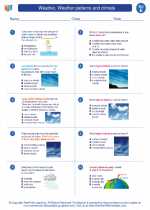
 Worksheet/Answer key
Worksheet/Answer key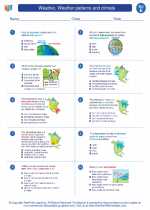
 Worksheet/Answer key
Worksheet/Answer key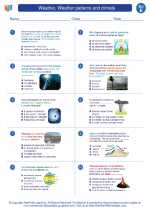
 Vocabulary/Answer key
Vocabulary/Answer key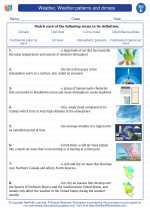
 Vocabulary/Answer key
Vocabulary/Answer key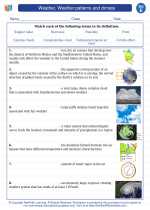
 Vocabulary/Answer key
Vocabulary/Answer key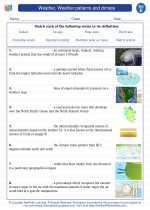
 Vocabulary/Answer key
Vocabulary/Answer key
 Vocabulary/Answer key
Vocabulary/Answer key
